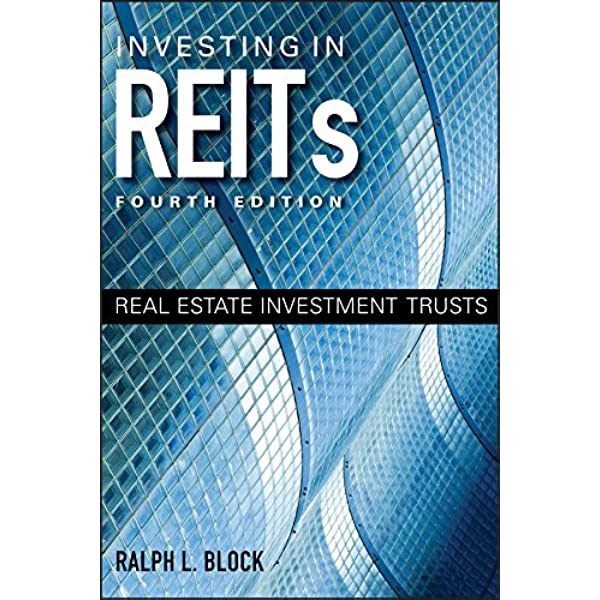
Know more about the company and its history before you invest in a REIT. Research the company's history, and how it compares to its competitors. You will then be able determine if it will pay good dividends. You should also know about the risks of buying REITs.
Tip to purchase REITs
It is important to evaluate the company's earnings and quality before you make a decision about investing in REITs. The earnings of the company are made up of funds earned from the operation of its properties, as well as any cash available for dividends. The fees associated with investment should be considered. Diversification of REITs is also important. Some REITs invest heavily in a particular type of property. This can increase the risk that you will lose your investment. You should diversify your portfolio to reduce your risk.
It is possible to set up a brokerage to invest in REITs. This takes just a few seconds and allows you sell and buy publicly traded REITs. Many of these investments offer high dividends. Some REITs also have the option of keeping your funds in a tax-favored account, which means you won't pay taxes on the money you receive as distributions.
Dividends are subjected tax
When buying REITs, investors need to be aware about taxes on dividends. Capital gains are when a REIT sells real estate assets. These capital gains can be included in dividends. The amount of tax due depends on whether or not the investor is eligible for special tax concessions. The investor's marginal rate of tax will determine whether the dividend is eligible for special tax concessions.

You can save taxes by investing in REITs without close ownership. It is important to avoid REITs with less than a five-year record of paying dividends. Generally, REITs cannot be held by more than 50% of individuals. The Tax Cuts and Jobs Act of 2017 provides a 20% deduction on pass-through income.
Liquidity
Liquidity is an important consideration for REITs. This can help them weather any unexpected fluctuations in the assets' value. REITs have the ability to increase their value by giving a portion of their earnings back to investors. REITs took advantage of lower interest rates during the recent downturn to improve liquidity and increase their cash balances. REITs cannot be considered safe investments as volatility is part and parcel of the business.
Additionally, REITs provide liquidity for investors as shares can be bought and sold on the stock exchange. Investors can use this liquidity to access cash or make changes in their investment strategies if necessary. Investors may also find REITs appealing because real estate is an uncorrelated asset class.
Risks associated with REITs
While REITs can provide a steady income in the form of dividends, investors should also keep in mind that REITs are not risk-free investments. The reason is that REITs trade just like stocks and may lose value. They are safe investments but must be competitive with other high-yield investments options. This could lead to REIT stock prices falling.
Another risk is the risk of rising interest rates. Rising interest rates could lead to increased borrowing costs for REITs. This will impact their cash flows. However, these risks are mitigated by REITs' solid balance sheets. Managers of these companies will try to maintain a healthy degree of leverage. Investors need to pay attention to this.

When to buy
Before you invest in REITs it is important that you consider your financial situation as well as your investment goals. Also, understand the tax implications for investing in REITs. REITs are not the best investment option for those who want to maximize their tax advantage because they generate most of their income through dividend income.
Right now, the uncertainty surrounding the expiration of master leases is a major issue for REITs. This uncertainty is often driving investors to sell. Their fundamentals have been affected as a consequence. Despite all the uncertainty, investors often fail to recognize that short-term issues are not likely to have a significant impact on their long-term prospects.
FAQ
What are the three most important things to consider when purchasing a house
The three most important things when buying any kind of home are size, price, or location. Location is the location you choose to live. Price is the price you're willing pay for the property. Size refers the area you need.
What should you consider when investing in real estate?
The first step is to make sure you have enough money to buy real estate. If you don't have any money saved up for this purpose, you need to borrow from a bank or other financial institution. Aside from making sure that you aren't in debt, it is also important to know that defaulting on a loan will result in you not being able to repay the amount you borrowed.
Also, you need to be aware of how much you can invest in an investment property each month. This amount should cover all costs associated with the property, such as mortgage payments and insurance.
Finally, ensure the safety of your area before you buy an investment property. It is best to live elsewhere while you look at properties.
How do I know if my house is worth selling?
If your asking price is too low, it may be because you aren't pricing your home correctly. If you have an asking price well below market value, then there may not be enough interest in your home. For more information on current market conditions, download our Home Value Report.
Do I need flood insurance
Flood Insurance protects from flood-related damage. Flood insurance can protect your belongings as well as your mortgage payments. Learn more information about flood insurance.
What should I look out for in a mortgage broker
A mortgage broker is someone who helps people who are not eligible for traditional loans. They search through lenders to find the right deal for their clients. This service may be charged by some brokers. Others offer no cost services.
How many times can I refinance my mortgage?
It depends on whether you're refinancing with another lender, or using a broker to help you find a mortgage. In both cases, you can usually refinance every five years.
Statistics
- Some experts hypothesize that rates will hit five percent by the second half of 2018, but there has been no official confirmation one way or the other. (fortunebuilders.com)
- This means that all of your housing-related expenses each month do not exceed 43% of your monthly income. (fortunebuilders.com)
- This seems to be a more popular trend as the U.S. Census Bureau reports the homeownership rate was around 65% last year. (fortunebuilders.com)
- Over the past year, mortgage rates have hovered between 3.9 and 4.5 percent—a less significant increase. (fortunebuilders.com)
- 10 years ago, homeownership was nearly 70%. (fortunebuilders.com)
External Links
How To
How to find houses to rent
For people looking to move, finding houses to rent is a common task. But finding the right house can take some time. When choosing a house, there are many factors that will influence your decision making process. These factors include size, amenities, price range, location and many others.
You can get the best deal by looking early for properties. Consider asking family, friends, landlords, agents and property managers for their recommendations. You'll be able to select from many options.